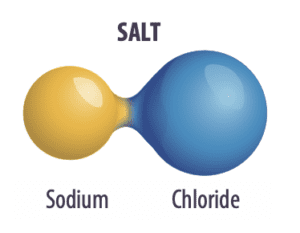Q: Does apple cider vinegar help with blood sugar control?
A: Richard Siegel, MD, co-director of the Diabetes and Lipid Center, answers: “Recently, there has been a lot of buzz around apple cider vinegar, including the claim that it benefits blood sugar control.
“Overall, the evidence supporting the blood sugar-lowering effect of apple cider vinegar is limited. Most of the claims for health benefits are based on animal studies. Randomized clinical trials have been small and returned mixed results, with some reporting beneficial effects, and others showing no impact.
“A recent review of 9 studies suggested that apple cider vinegar decrease fasting blood sugar, particularly when consumed for over eight weeks. However, the review has several important limitations, particularly that most of the studies were poorly controlled. Included were studies that did not account for participants’ dietary intake and were limited to participants with type 2 diabetes.
“Apple cider vinegar is not a substitute for prescribed medications or a balanced diet.
“Consuming undiluted apple cider vinegar directly comes with risks. It has been reported to break down tooth enamel and cause erosion in the back of your throat. If you do choose to consume apple cider vinegar, mix one to two tablespoons in a large glass of water.”

Q: Can you explain the difference between sodium and salt?
A: Alice H. Lichtenstein, DSc, Gershoff Professor of Nutrition at the Friedman School and editor-in-chief of this newsletter, answers: “Sodium is one part of the molecule we call ‘salt.’ The other part is chloride. Hence, you may sometimes see salt referred to as sodium chloride. Sodium chloride is the primary salt in seawater and in our bodies, and it’s the crystalline stuff we use in cooking or sprinkle from a shaker.
“Our bodies need some sodium for our muscles and nerves to function properly and for maintaining a healthy blood volume. But we routinely consume much more sodium than we need. It is estimated that most Americans consume around 3400 milligrams (mg) of sodium a day. Our bodies only need around 500 mg to function. All this excess sodium can cause or contribute to problems like fluid retention and high blood pressure. The latter increases risk for heart attack and stroke.
“Most of the sodium we consume comes from sodium chloride (salt). Some is found naturally in foods, but, in our modern age, most is added during food processing. The best way to cut back on sodium intake is to avoid or limit processed and prepared foods (including restaurant and takeout meals). Limiting the salt you add in cooking or at the table can be helpful, but most of the sodium we consume is added outside the home.”
Q: I’ve seen a lot of hype around ketone drinks. What are they and would they be helpful for increasing my endurance?
A: Roger Fielding, PhD, senior scientist of the Nutrition, Exercise Physiology, and Sarcopenia Lab at the HNRCA, answers: “Ketone bodies are fat-derived compounds produced by the liver in response to a high fat, very low carbohydrate diet, such as the ketogenic diet. When energy from carbohydrates is limited, ketones can be used as an alternative energy source. It is theorized that using fat as fuel can prolong endurance performance and delay fatigue.
“While this sounds promising for endurance athletes, the evidence to suggest ketone drinks are beneficial to athletic performance is lacking. Of the limited research, results are mixed, with some studies demonstrating improved performance with ketone drinks, others showing no difference in athletic performance, and some even demonstrating worse performance in those who consumed ketone drinks. Studies have also revealed gastrointestinal upset in groups consuming ketone drinks. Furthermore, most studies recruited well-trained athletes, limiting the generalizability of findings to recreational exercisers.
“More importantly, given the limited amount of research available, the safety of long-term use of ketone drinks remains unknown.
“If you are interested in enhancing your endurance, I recommend focusing on a nutrient-rich dietary pattern, including carbohydrates, as they are our body’s preferred fuel source. Make sure you are eating within one to two hours after engaging in physical activity to replenish energy stores for your next bout of activity.”
Nicole Ninteau, PhD, MPH, earned a master’s in public health focused on health communication and a doctorate in nutritional biochemistry from Tufts University, where she currently serves as an adjunct lecturer. Tufts Health & Nutrition Letter is pleased to welcome Nicole as a contributing writer.
























